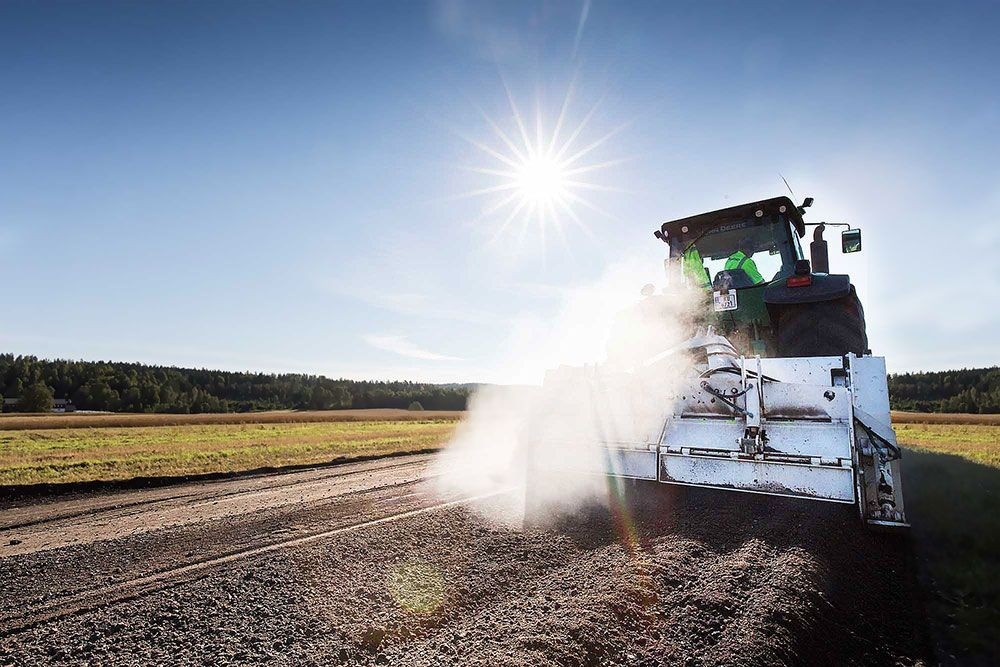Using recycled asphalt bonded by plant-based adhesive, Carbon Crusher has created a mix for carbon negative roads that is both affordable and actively sequesters emissions.
Paving the road to a greener future sounds awfully cliché, but that is quite literally Carbon Crusher’s business MO.
The Norwegian tech start-up has been wracking its brains over the last year to think up alternatives to conventional road tar. Since the Romans, there has been little innovation in the area, and the 40 million miles of roads today are mostly made up of crude oil and hardcore.
When maintenance or construction works are needed, which seems to be perpetually happening in London by the way, our current processes are very polluting – that’s 400 million tons of CO2 a year – and in stark contrast to global decarbonisation targets.
Even if we develop a new blend of green asphalt now, turfing up our existing roads and starting from scratch is a ridiculous prospect both logistically and economically. What has Carbon Crusher come up with then?
Impressively, the eco-innovator has developed a way of tweaking our existing roads’ DNA to actually sequester carbon emissions. Who doesn’t love a surely cut corner?

Through use of its eponymous ‘Crusher’ machine, the top layer of both asphalt and concrete roads are ground up into mulch. Then, all residue is re-bonded by an agent called lignin, which is an abundant plant-based polymer left behind by the paper industry.
The natural cell structure of lignin actively absorbs carbon, meaning that when roads are re-laid in this way, any harmful emissions contained within the organic matter will be safely concealed within the road.





















